Fleurs du Mal Magazine


Or see the index

En hiver
Le sol trempé se gerce aux froidures premières,
La neige blanche essaime au loin ses duvets blancs,
Et met, au bord des toits et des chaumes branlants,
Des coussinets de laine irisés de lumières.
Passent dans les champs nus les plaintes coutumières,
A travers le désert des silences dolents,
Où de grands corbeaux lourds abattent leurs vols lents
Et s’en viennent de faim rôder près des chaumières.
Mais depuis que le ciel de gris s’était couvert,
Dans la ferme riait une gaieté d’hiver,
On s’assemblait en rond autour du foyer rouge,
Et l’amour s’éveillait, le soir, de gars à gouge,
Au bouillonnement gras et siffleur, du brassin
Qui grouillait, comme un ventre, en son chaudron d’airain.
Emile Verhaeren
(1855 – 1916)
En hiver
• fleursdumal.nl magazine
More in: 4SEASONS#Winter, Archive U-V, Archive U-V, Verhaeren, Emile

I Am Not Yours
I am not yours, not lost in you,
Not lost, although I long to be
Lost as a candle lit at noon,
Lost as a snowflake in the sea.
You love me, and I find you still
A spirit beautiful and bright,
Yet I am I, who long to be
Lost as a light is lost in light.
Oh plunge me deep in love—put out
My senses, leave me deaf and blind,
Swept by the tempest of your love,
A taper in a rushing wind.
Sara Teasdale
(1884-1933)
I Am Not Yours
• fleursdumal.nl magazine
More in: #Editors Choice Archiv, Archive S-T, Archive S-T, Teasdale, Sara
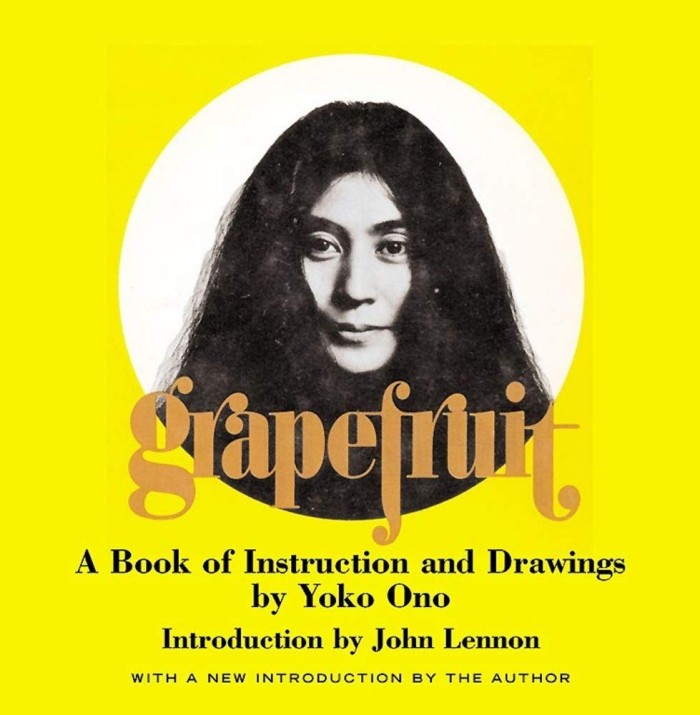
TATE MODERN LONDON
Yoko Ono Music of the Mind
15 February – 1 September 2024
Delve into the powerful, participatory work of artist and activist Yoko Ono
Yoko Ono (1933) is a leading figure in conceptual and performance art, experimental film and music. Developing her practice in America, Japan and the UK, she is renowned for her activism, work for world peace, and environmental campaigns. Ideas are central to her art, often expressed in poetic, humorous and radical ways.
Spanning more than seven decades, the exhibition focuses on key moments in Ono’s career, including her years in London from 1966 to 1971, where she met John Lennon (1940 – 1980).
The show explores some of Ono’s most talked about artworks and performances, from Cut Piece (1964), where people were invited to cut off her clothing, to her banned Film No.4 (Bottoms) (1966-67) which she created as a ‘petition for peace’.
Alongside her early performances, works on paper, objects, and music, audiences will discover a selection of her activist projects such as PEACE is POWER and Wish Tree, where visitors can contribute personal wishes for peace.
Through her instructions and event scores, Ono invites visitors to take part in both simple acts of the imagination and active encounters with her works.
The exhibition is organised by Tate Modern, London in collaboration with Kunstsammlung Nordrhein-Westfalen, Düsseldorf
Y O K O O N O & J O H N L E N N O N
• fleursdumal.nl magazine
More in: #Editors Choice Archiv, - Book Lovers, - Book Stories, Archive K-L, Archive O-P, Archive Q-R, Art Criticism, Exhibition Archive, FDM in London, Pax for peace, Performing arts, Yoko Ono & John Lennon

Il faut tout perdre
Il faut tout perdre, il faut vous obéir.
Je vous les rends ces lettres indiscrètes,
De votre cœur éloquents interprètes,
Et que le mien eût voulu retenir ;
Je vous les rends. Vos yeux à chaque page
Reconnaîtront l’amour et son langage,
Nos doux projets, vos serments oubliés,
Et tous mes droits par vous sacrifiés.
C’était trop peu, cruelle Éléonore,
De m’arracher ces traces d’un amour
Payé par moi d’un éternel retour ;
Vous ordonnez que je vous rende encore
Ces traits chéris, dont l’aspect enchanteur
Adoucissait et trompait ma douleur.
Pourquoi chercher une excuse inutile,
En reprenant ces gages adorés
Qu’aux plus grands biens j’ai toujours préférés ?
De vos rigueurs le prétexte est futile.
Non, la prudence et le devoir jaloux
N’exigent pas ce double sacrifice.
Mais ces écrits qu’un sentiment propice
Vous inspira dans des moments plus doux,
Mais ce portrait, ce prix de ma constance,
Que sur mon cœur attacha votre main,
En le trompant, consolaient mon chagrin :
Et vous craignez d’adoucir ma souffrance ;
Et vous voulez que mes yeux désormais
Ne puissent plus s’ouvrir sur vos attraits,
Et vous voulez, pour combler ma disgrâce,
De mon bonheur ôter jusqu’à la trace.
Ah ! j’obéis, je vous rends vos bienfaits.
Un seul me reste, il me reste à jamais.
Oui, malgré vous, qui causez ma faiblesse,
Oui, malgré moi, ce cœur infortuné
Retient encore et gardera sans cesse
Le fol amour que vous m’avez donné.
Évariste de Parny
(1753-1814)
Il faut tout perdre
Élégies (1784)
• fleursdumal.nl magazine
More in: # Classic Poetry Archive, Archive O-P, Archive O-P
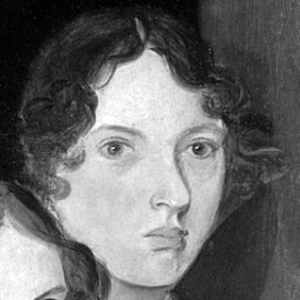
To a Wreath of Snow
O transient voyager of heaven!
O silent sign of winter skies!
What adverse wind thy sail has driven
To dungeons where a prisoner lies?
Methinks the hands that shut the sun
So sternly from this morning’s brow
Might still their rebel task have done
And checked a thing so frail as thou.
They would have done it had they known
The talisman that dwelt in thee,
For all the suns that ever shone
Have never been so kind to me!
For many a week, and many a day
My heart was weighed with sinking gloom
When morning rose in mourning grey
And faintly lit my prison room
But angel like, when I awoke,
Thy silvery form so soft and fair
Shining through darkness, sweetly spoke
Of cloudy skies and mountains bare;
The dearest to a mountaineer
Who, all life long has loved the snow
That crowned her native summits drear,
Better, than greenest plains below.
And voiceless, soulless, messenger
Thy presence waked a thrilling tone
That comforts me while thou art here
And will sustain when thou art gone
Emily Brontë
(1818 – 1848)
To a Wreath of Snow
• fleursdumal.nl magazine
More in: # Classic Poetry Archive, 4SEASONS#Winter, Archive A-B, Archive C-D, Brontë, Anne, Emily & Charlotte

Winter – A Dirge
The wintry west extends his blast,
And hail and rain does blaw;
Or, the stormy north sends driving forth
The blinding sleet and snaw:
While, tumbling brown, the burn comes down,
And roars frae bank to brae;
And bird and beast in covert rest,
And pass the heartless day.
“The sweeping blast, the sky o’ercast,”
The joyless winter-day
Let others fear, to me more dear
Than all the pride of May:
The tempest’s howl, it soothes my soul,
My griefs it seems to join;
The leafless trees my fancy please,
Their fate resembles mine!
Thou Power Supreme whose mighty scheme
These woes of mine fulfil,
Here, firm, I rest; they must be best,
Because they are Thy will!
Then all I want—O do Thou grant
This one request of mine.—
Since to enjoy Thou dost deny,
Assist me to resign.
Robert Burns
(1759 – 1796)
Winter – A Dirge
• fleursdumal.nl magazine
More in: # Classic Poetry Archive, 4SEASONS#Winter, Archive A-B, Archive A-B, Burns, Robert
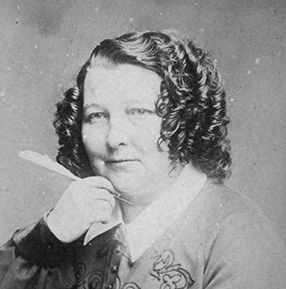
Winter
We know ’tis good that old Winter should come,
Roving awhile from his Lapland home;
’Tis fitting that we should hear the sound
Of his reindeer sledge on the slippery ground:
For his wide and glittering cloak of snow
Protects the seeds of life below;
Beneath his mantle are nurtured and born
The roots of the flowers, the germs of the corn.
The whistling tone of his pure strong breath
Rides purging the vapours of pestilent death.
I love him, I say, and avow it again,
For God’s wisdom and might show well in his train.
But the naked—the poor! I know they quail
With crouching limbs from the biting gale;
They pine and starve by the fireless hearth,
And weep as they gaze on the frost-bound earth.
Stand nobly forth, ye rich of the land,
With kindly heart and bounteous hand;
Remember ’tis now their season of need,
And a prayer for help is a call ye must heed.
A few of thy blessings, a tithe of thy gold,
Will save the young, and cherish the old.
’Tis a glorious task to work such good—
Do it, ye great ones! Ye can, and ye should.
He is not worthy to hold from heaven
The trust reposed, the talents given,
Who will not add to the portion that’s scant,
In the pinching hours of cold and want.
Oh! listen in mercy, ye sons of wealth,
Basking in comfort and glowing with health;
Give whate’er ye can spare, and be ye sure
He serveth his Maker who aideth the poor.
Eliza Cook
(1818 – 1889}
Winter
From: Melaia and Other Poems (1840)
• fleursdumal.nl magazine
More in: # Classic Poetry Archive, 4SEASONS#Winter, Archive C-D, Archive C-D
En créant en 1635 un jardin des plantes médicinales à Paris, directement placé sous son autorité, Louis XIII fonde non seulement l’une des plus anciennes institutions scientifiques de France avant l’Académie des Sciences (1666) et l’Observatoire de Paris (1667), mais aussi l’une des plus modernes.
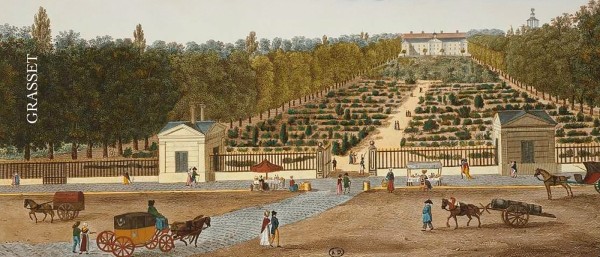
Des cours gratuits, donnés en français et non plus en latin au tout-venant : du jamais vu, qui fait froncer les sourcils à la Sorbonne! Car le succès est immédiat, les carabins s’en donnent à cœur-joie de disséquer des cadavres, de ridiculiser les Diafoirus, de découvrir une sexualité aux plantes: médecine et botanique ne font qu’un au XVIIème siècle et c’est le premier médecin du roi, Guy-Crescent Fagon, qui administre le jardin jusqu’à la fin du règne de Louis XIV.
Au XVIIIème siècle, c’est la surproduction de tout : des espèces végétales, animales et minérales rapportées par ces missions scientifiques qui sillonnent l’univers, des cabinets de curiosité des grands de ce monde, des touristes qui affluent de toute l’Europe au jardin des Plantes pour rencontrer Buffon, l’auteur d’un des best-sellers de son temps, une Histoire naturelle en 36 volumes qui ignore sèchement son contemporain, le savant suédois Carl von Linné dont la classification fait encore autorité.
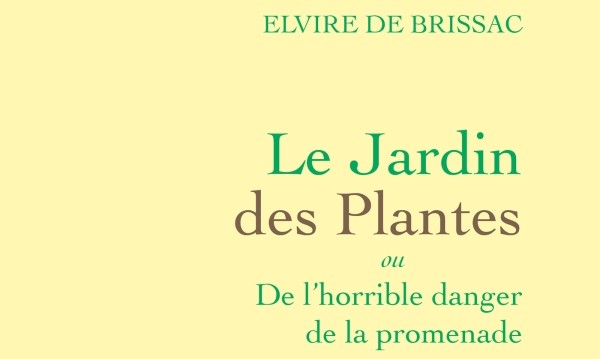
Nationalisé à la révolution, sauvé par Lakanal qui voit surtout son aspect éducatif, voici le jardin Royal transformé en muséum. Douze professeurs vont chacun occuper une chaire et administrer l’institution pendant deux cents ans et aucun des promeneurs, peintres ou écrivains qui découvrent avec délices au XIXème siècle la ménagerie, les grandes galeries, le jardin d’Acclimatation (1860), au bois de Boulogne, le musée d’Ethnographie, ancêtre du musée de l’Homme, au Trocadéro (1878) ou le zoo de Vincennes (1934) ne se doute des querelles qui agitent les coulisses de l’établissement et se nomment fixisme, transformisme, Darwinisme, colonialisme, adaptation ou refus de la révolution industrielle, déclin scientifique.
L’homme est-il un singe? La France apporte-t-elle aux peuples colonisés l’ombre ou la lumière? A quoi sert le muséum ? Comme la pluie qui tombe dans les grandes galeries, faute de crédits, après la Seconde Guerre mondiale et surtout après les Trente Glorieuses, l’histoire naturelle est-elle en train de tomber dans l’oubli?
L’ADN découvert en 1953, qui révèle tout de vous, de votre passé et de celui du vieux renard empaillé ou de la roche emprisonnée, fait-il encore de nous des être humains ? La numérisation viendra-t-elle à bout du trop plein des musées ? Va-t-elle rendre à leurs pays d’origine tout ce qui en a été emporté? Et la terre qui se décroche par mottes entières sous nos yeux, où va-t-elle? C’est dire qu’au XXIème siècle, le muséum a encore devant lui de beaux jours et de belles promenades parmi les dangers de la terre. « [Celle-ci] peut bien disparaître, disait August Strinberg en 1894, si le jardin des Plantes est épargné, la création sera sauvée. » Puisse l’avenir lui donner raison!
Le Jardin des Plantes
par Elvire de Brissac
Grasset Ed.
Paru le: 10 Janvier 2024
Format: 140 x 205 mm
304 pages
Ean: 9782246837244
Prix: € 22.00
• fleursdumal.nl magazine
More in: - Book News, - Bookstores, Archive A-B, Department of Curious Nature, Natural history, NONFICTION: ESSAYS & STORIES

Ich hab’s gewagt
Einst schrieb ich alles in Latein;
Nicht jedem konnt’s verständlich sein.
Nun ruf’ ich dich, mein Vaterland,
In deutscher Sprache wohlbekannt.
Laßt mich doch nicht alleine sprechen!
Jetzt ist es Zeit um loszubrechen,
Gemeinsam für die Freiheit streben!
Was war das bisher für ein Leben,
Kein Mensch durf’t mehr die Wahrheit sagen!
Steh auf, mein Volk! Nicht lange zagen,
Die Lügenherrschaft zu vertreiben!
Nur Wahrheit soll fortan noch bleiben.
Gott schenk’ dem Heil, der zu mir steht,
Damit sein Eifer nicht vergeht!
Manch Edler – hoff’ ich – hat den Mut,
Manch Graf, manch Bauersmann, so gut
Manch Bürger, der in seiner Stadt
Der Lebenslage übersatt –
Auf daß ich nicht alleine streite.
Wohlan, Gott ist auf uns’rer Seite!
Kein Deutscher bleibe still daheim!
„Ich hab’s gewagt!“ – das sei sein Reim.
Ulrich von Hutten
Ritter und Dichter
(* 21.04.1488, † 29.08.1523)
Ich hab’s gewagt!
• fleursdumal.nl magazine
More in: - Archive Tombeau de la jeunesse, Archive G-H, Archive G-H, Hutten, Ulrich von

1963
Destijds woonde ik in een land waar mijn jonge
oren luisterden naar zwakgewortelde preken, en
de kapelaan ons aanried aan kleine zonden niet
al te zwaar te tillen. Het was in de dagen dat we
nog wel eens holden en niet dachten aan talmen,
dat de waarheid alleen maar een voordeur had.
Bert Bevers
1963
Uit Bedekte termen, Stabilitas loci, Antwerpen, 2023
Voor bundel zie:
♦ https://www.amazon.nl/dp/B0C8QW1G9N
•fleursdumal.nl magazine
More in: Archive A-B, Archive A-B, Bedekte Termen, Bevers, Bert
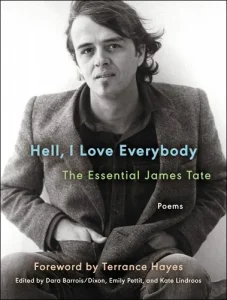
Hell, I Love Everybody.
An essential collection of James Tate’s extraordinary poems that will captivate today’s readers, with a foreword by Terrance Hayes
Celebrating James Tate’s work as it transcends convention, time, and everything that tells us, “No, you can’t do that,” Hell, I Love Everybody gives us the poet at his best, his most intimate, hopeful, inventive, and brilliant. John Ashbery called Tate the “poet of possibilities,” and this collection records forays into possibilities for American poetry’s future. With a foreword by Terrance Hayes, it is sure to give readers new and old a lasting collection of favorites.
James Tate was born in 1943 in Kansas City, Missouri. He earned a BA from Kansas State College and an MFA from the Iowa Writers’ Workshop. He was the author of over 20 poetry collections, including the posthumously published The Government Lake (2018); The Ghost Soldiers (2008); Worshipful Company of Fletchers (1994), which won the National Book Award; Selected Poems (1991), which won the Pulitzer Prize and the William Carlos Williams Award; Distance from Loved Ones (1990); Constant Defender (1983); Viper Jazz (1976); and The Oblivion Ha-Ha (1970). Tate died in 2015, at the age of 71.
James Tate’s poems have been awarded the National Book Award, the Pulitzer Prize, the Wallace Stevens Award, the William Carlos Williams Award, the Yale Younger Poets Award, and the National Institute of Arts and Letters Award, and have been translated across the globe. Tate was a member of the American Academy of Arts and Letters; his many collections include The Lost Pilot, The Oblivion Ha-Ha, Absences, Distance from Loved Ones, Worshipful Company of Fletchers, and The Ghost Soldiers. Born in Kansas City, Missouri, he made his home in Pelham, Massachusetts.
Terrance Hayes is the author of Lighthead, winner of the 2010 National Book Award and finalist for the National Book Critics Circle Award. His other books are Wind in a Box, Hip Logic, Muscular Music, and How to Be Drawn, which was a finalist for the 2015 National Book Award and received the 2016 NAACP Image Award for Poetry. His honors include a National Endowment for the Arts Fellowship, a Guggenheim Fellowship, and a 2014 MacArthur Fellowship.
Hell, I love everybody
An essential collection of James Tate’s extraordinary poems
hat will captivate todays readers,
with an introduction by Terrance Hayes
Publisher: Ecco Press
Publish Date: November 07, 2023
Pages 112
Dimensions 5.3 X 7.1 X 0.3 inches
Language English
Type Paperback
EAN/UPC 9780063306073
Price $17.99
• fleursdumal.nl magazine
More in: #Editors Choice Archiv, - Book News, - Bookstores, Archive S-T, Archive S-T

I Thought of You
I thought of you and how you love this beauty,
And walking up the long beach all alone
I heard the waves breaking in measured thunder
As you and I once heard their monotone.
Around me were the echoing dunes, beyond me
The cold and sparkling silver of the sea—
We two will pass through death and ages lengthen
Before you hear that sound again with me.
Sara Teasdale
(1884-1933)
I Thought of You
from: Flame and Shadow
• fleursdumal.nl magazine
More in: #Editors Choice Archiv, Archive S-T, Archive S-T, Teasdale, Sara
Thank you for reading Fleurs du Mal - magazine for art & literature